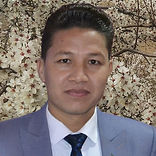
Urban Environmental Education
-
4-week Global Online Course
-
25 professional-development hours
-
Cornell University certificate
-
Sept 15 – Oct 12 2025
-
Asynchronous + optional webinars
Join this course to advance real-world sustainability action and participate in a vibrant learning community!
Why take this course?
Cities are hotspots of innovation, and so is urban environmental education. Participants will experience several benefits:
-
Action-ready plan — Draft an urban EE lesson or stewardship action plan you can implement the next day in your organization, school, or community.
-
Standards alignment — See how urban nature, climate, and community projects map onto literacy and science standards.
-
Professional network — Join a global cohort of educators, planners, and city staff committed to greener, biophilic, resilient, and more just cities.
-
Cornell certificate — Earn a digital certificate verifying 25 professional development hours you can share with employers or licensure boards.


Is this course for me?
-
Non-formal educators & NGO staff – Design engaging urban stewardship programs that resonate with diverse communities.
-
K-12 teachers – Weave city-based phenomena into science, civics, or art classes while meeting learning standards.
-
Municipal & private-sector professionals – Create people-centered green spaces and allocate resources that spark community learning.
-
University students & early-career professionals – Build a portfolio project, grow your network, and explore careers at the nexus of cities, sustainability, and education.
What you will learn
Based on the Urban Environmental Education Review and recent research, you will be able to:
-
Understand urban contexts, participants, and learning settings.
-
Apply research-based approaches (place-based, problem-based, project-based).
-
Connect urban EE activities to science, climate, and sustainability standards.
-
Create and peer-review an Urban EE action/lesson plan for your community or classroom.
Week 1
Urban Foundations
Why Cities Matter
advancing urbanization · sustainable cities · environmental justice · sense of place · climate action
Week 2
Learning Spaces
Streets, Parks & Pocket Labs
nonformal settings · community partnerships · school–campus synergies · mobile labs · living-lab campuses
Week 3
Engaging Participants
People & Community
early childhood · youth development · adult learning · intergenerational networks · inclusive education · educator PD
Week 4
Creative Approaches
From Green Walls to Community Science
cities as classrooms · environmental arts · urban agriculture · green infrastructure · community science · digital storytelling
Course experience
-
Format – asynchronous lectures, readings, discussion boards, plus two optional live webinars each week (recorded, available for watching later).
-
Workload – about 5 hours per week; 25 hrs total logged on the certificate.
-
Platforms – edX Edge for core content; optional WhatsApp/WeChat groups for informal networking
-
Learning approaches – We create social learning experiences through discussions and sharing ideas. We also believe in the power of applying what you learn to your own classrooms, organisations, and communities, so you’ll craft an Action or Lesson Plan by the end of the course.

Webinar speakers
Our course features two live webinars each week with inspiring guest speakers who share ideas and stories from the frontlines of urban environmental education.
These sessions are among the most anticipated parts of the course, sparking creativity and helping participants apply new insights to their own programs.
Recordings will be available on the course platform for those who cannot join live sessions.
Instructors

Fish Yu
Graduate student in Natural Resources and the Environment, Cornell University

Alex Kudryavtsev, PhD
Course co-designer,
Cornell University
Research Associate

Marianne Krasny, PhD
Course co-designer,
Cornell University Professor
Teaching Assistants

Wanying Wu
Chinese Course Support, PhD Candidate in Environmental Engineering, University of Wyoming

Chen Zhang
PhD Candidate, Department of Education Management, East China Normal University

Renda Sun
Assistant for participants in China, MS Candidate in Environmental Conservation Education at NYU
Course Administrator

Hamidullah Nikzad
Graduate student,
Cornell University
Questions? feel free to ask Hamidullah Nikzad, our course administrator. Please type "Urban EE" in the subject line of your email. CivicEcology@cornell.edu
Meet your team
Cornell Civic Ecology Lab faculty, researchers, and graduate TAs will guide you, including Fish Yu, Alex Kudryavtsev, and Prof. Marianne Krasny.
Course Trailer
Expert Webinars
We will conduct a series of webinars and open discussions featuring outstanding experts and educators from both formal and non-formal education. Participation in these live meetings is optional. They will be recorded and can be watched at any time during the course.
Participant Quotes
The course was insightful and well-organized. I appreciated the practical approach and the supportive instructors.
You really exceeded my expectations. Thank you for pulling everything together and inviting such engaging webinar guests.
I’m grateful for how the Civic Ecology Lab made a fully online course feel like a genuine community.
The content and resources were incredible: detailed, helpful, and in-depth. I only wish I’d had more time to explore everything offered.
I loved the format: concise video lectures for orientation, followed by readings that took each topic deeper.
Tuition
Our tuition tiers support course delivery and growth:
-
$500 – Super Sponsor — Support more participants and make a bigger impact on course growth and innovation.
-
$200 – Sponsor — Support participants and help sustain course development.
-
$100 – Standard — For participants residing in the United States, Canada, European countries, Japan, South Korea, Singapore, Mainland China, Taiwan, Australia, and New Zealand.
-
$25 – Reduced — For participants residing in all other countries.
-
Groups – Group lead registers first, shares their code with 10+ participants who pay. After 10+ participants used the code and paid, the group lead’s registration fee is refunded.
-
Competitive scholarship – Apply by Sept 5, 2025; awards announced Sept 10. Learn more (PDF file).
How to earn the certificate
Complete weekly discussions, watch/attend at least one webinar, and submit your Action Plan or Lesson Plan by Oct 19 2025 to receive a Cornell PDF certificate emailed within two months.


Need help?
Most logistics are covered above. But if you still have questions, please email CivicEcology@cornell.edu with “Urban EE” in the subject line.
We are glad to support your learning journey and value your efforts to make urban communities greener, more just, sustainable, equitable, and resilient through environmental education, urban planning, and sustainability action.


